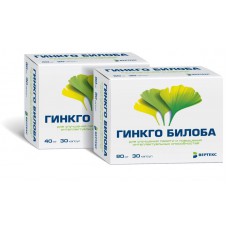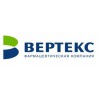Expiration date: 05/2026
PHARMACOLOGICAL ACTION
Means of plant origin. The action is due to the nature of its influence on the metabolic processes in cells, rheological properties of blood and microcirculation, as well as vasomotor reactions of large blood vessels. It improves cerebral blood circulation and supply of oxygen and glucose to the brain. It has a vasodilating effect, prevents platelet aggregation. Normalizes metabolic processes, has an antihypoxic effect on tissue. Prevents peroxidation of lipids and the formation of free radicals of cell membranes. It has a pronounced anti-edema effect at the level of the brain and peripheral tissues. In various pathological conditions prevents increased proteolytic activity of the serum.
DRUG INTERACTION
There are reports that the use of drugs Ginkgo biloba and simultaneous carrying out of thrombolytic therapy (anticoagulants, antiplatelet agents, including acetylsalicylic acid) increases the risk of bleeding in the brain.
PREGNANCY AND LACTATION
Ginkgo biloba is contraindicated in pregnancy and lactation (breastfeeding).
SIDE EFFECT
Possible: digestive disorders, headaches, allergic reactions.
INDICATIONS
In geriatrics, attention and/or memory disorders, disorders of mental activity, fear, dizziness, tinnitus, sleep disorders, General malaise resulting from cerebrovascular disorders.
CONTRAINDICATIONS
Reduced blood clotting, erosive gastritis, gastric ulcer and duodenal ulcer in acute phase, acute cerebrovascular accident, acute myocardial infarction, hypotension, pregnancy, lactation, childhood and adolescence till 18 years, hypersensitivity to Ginkgo biloba preparations.
SPECIAL INSTRUCTION
Avoid the use of drugs Ginkgo biloba in the presence of risk factors for intracranial hemorrhage.
THE USE IN CHILDREN
Contraindicated in children and adolescents under 18 years.


